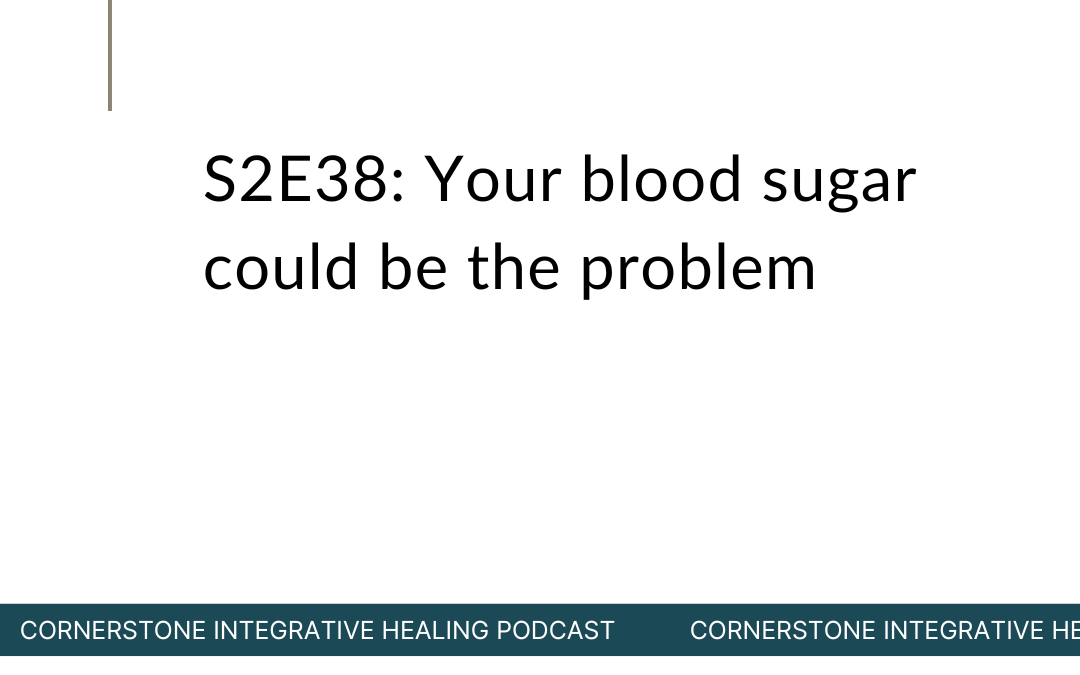When it comes to maintaining overall health, blood sugar balance is foundational. In our latest podcast episode, we dive into why blood sugar is critical for not only physical health but also for mood, energy levels, and even sleep. If you’re experiencing unexplained weight gain, fatigue, or brain fog, it might be time to look at your blood sugar.
Blood Sugar is Vital for Hormones, Mood and Sleep
Many people assume blood sugar is only a concern for those with diabetes or prediabetes. However, blood sugar affects everyone. When it’s unbalanced, it can lead to a range of symptoms like mood swings, difficulty sleeping, energy crashes, and even hormone imbalances. Whether or not you have diabetes, it’s important to keep blood sugar stable because it acts as a cornerstone of health, impacting many of your body’s vital processes.
The Process: How Blood Sugar Works in Your Body
When you eat carbohydrates, your blood sugar naturally increases, and your pancreas releases insulin to help transport glucose into your cells, giving you energy. When blood sugar drops too low, your liver releases stored glucose to bring it back into balance. However, stress can also cause blood sugar levels to rise because your liver releases glucose when you’re under stress, leading to elevated levels even if you haven’t eaten.
Here’s a quick breakdown:
- High Blood Sugar: Insulin helps to lower blood sugar by moving glucose into cells.
- Low Blood Sugar: The pancreas releases glycogen to raise blood sugar when it’s too low.
- Stress and Fasting: Your liver releases stored glucose during fasting or stressful times, which is why blood sugar can be high even if you haven’t eaten.
Do you struggle with fatigue? Take our quiz and find out where your low energy may be coming from!
Common Symptoms of Blood Sugar Imbalance
Low Blood Sugar Symptoms:
- Dizziness
- Brain fog
- Cold hands and feet
- Rapid heartbeat
- Weakness and fatigue
- Irritability or feeling “hangry”
- Difficulty concentrating
High Blood Sugar Symptoms:
- Unexplained weight gain
- Slow healing wounds
- Frequent infections
- Headaches
- Fatigue and blurred vision
- GI issues
How Blood Sugar Impacts Hormones and Energy Levels
One of the main ways blood sugar affects the body is through its influence on hormones, especially cortisol (the stress hormone) and melatonin (the sleep hormone). Blood sugar fluctuations can disrupt these hormones, leading to poor sleep, chronic fatigue, and a rollercoaster of energy levels throughout the day. If you’re waking up between 1 and 3 AM consistently, this could be a sign of blood sugar dysregulation.
In fact, the first step in balancing hormones, including sex hormones like estrogen and progesterone, is to ensure your blood sugar is stable. Without a steady foundation, hormonal imbalances are almost inevitable, contributing to mood swings, fatigue, and more.
Food Sensitivities and Blood Sugar
Food sensitivities can also have a surprising impact on blood sugar. Eating foods that your body is sensitive to triggers a stress response, raising cortisol levels and ultimately increasing blood sugar. Common culprits include gluten, dairy, and corn, though many healthy foods like eggs or beef can also cause issues for some people.
Eliminating these foods temporarily while you heal the gut and reduce stress is crucial for keeping blood sugar stable and preventing long-term imbalances.
FREE DOWNLOAD: 5 Essential Tips for Balanced Blood Sugar


